Iran Claims Prisoner Swap Deal Signed By US Representative
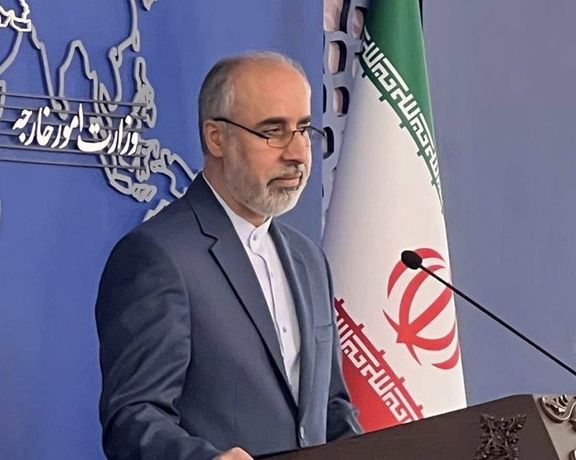
Iran insists it is doing a prisoner swap with the US in spite of the Biden administration’s categoric denials of the Iranian claims.

Iran insists it is doing a prisoner swap with the US in spite of the Biden administration’s categoric denials of the Iranian claims.
The Iranian foreign ministry says the "written agreement has been signed by the official representative of the United States” though has failed to specify who.
Iran’s Foreign Ministry Spokesman Nasser Kanaani told a weekly press conference on Monday that “a written agreement regarding the exchange of prisoners was signed through an intermediary” in March 2022.
However, in what can be seen as a back peddling, he claimed that the deal "has not been implemented by the US government so far for various reasons”, suggesting the announcement was perhaps premature.
"In recent weeks, there has been an exchange of indirect messages to update the deal," he added.
Iran’s foreign minister Hossein Amir-Abdollahian told state TV Sunday: “Regarding the exchange of current prisoners between Iran and the US, we have reached an agreement within the past few days. If everything goes well on the American side, I think we will witness a prisoner exchange in the near future. We see this as an entirely humanitarian case.”
A White House official immediately denied Amir-Abdollahian's statement calling it “a cruel lie”, but reiterated that the United States is committed to securing the release of Americans held in Iran.
Several Iranian-American citizens, including Siamak Namazi, Emad Sharqi, and Murad Tahbaz, are still imprisoned in Iran. In exchange for the release of the hostages, in addition to demanding money, the Islamic Republic plans to urge Washington to release the Iranians imprisoned in the US for circumventing sanctions or their involvement in terror activities.
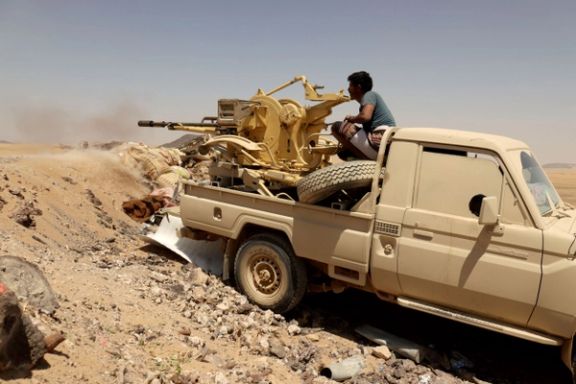
Agreement to restore relations with Iran does not mean disputes have been resolved, Saudi Foreign Minister Prince Faisal bin Farhan bin Abdullah has said.
In an interview with London-based Asharq Al-Awsat, bin Farhan emphasized that the agreement announced March 10 in Beijing with Chinese mediation and apparent guarantees, shows a joint desire by Iran and Saudi Arabia to “resolve disputes through communication and dialogue.”
He underscored, however, “This does not mean that an agreement has been reached to resolve all pending disputes between them.”
The biggest dispute is the conflict in Yemen where the two countries have fought each other indirectly for 8 years. Iran has backed Houthi rebels who pushed the internationally recognized government out of the capital and proceeded to conquer territories beyond their ethnic-religious traditional domain.
As Saudi Arabia backed the anti-Houthi forces with direct military involvement, Houthis used Iranian missiles and drones to launch hundreds of attacks against targets inside Saudi territory.
Most analysts believe that Riyadh wants to end the Yemen conflict as it embarks on an ever-ambitious plan of economic development, which needs security.
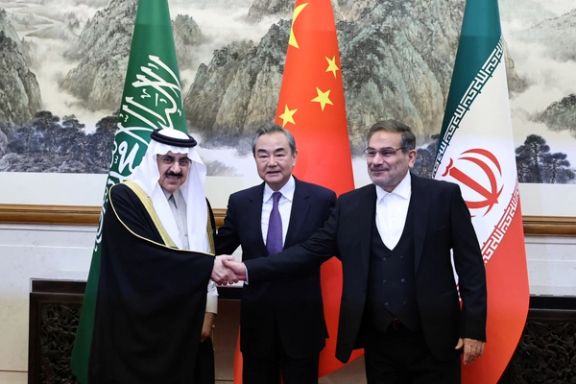
Executive Director of The Washington Institute Robert Sadloff in a long series of tweets Sunday referred to the Saudi quest for fast economic growth, quoting a senior Saudi official who said growth “can be sidetracked through insecurity, whether from Houthi missiles or the threat of [Iranian] nuclear blackmail.”
The Saudi foreign minister in his interview emphasized the economic factor. “We, in the Kingdom, hope to open a new chapter with Iran and bolster cooperation that would consolidate security and stability and push forward development and prosperity, not just in both our countries, but the entire region.”
Former Iranian diplomat Javid Qorban-Ogli told Didban website in Tehran Monday that ending the Yemen conflict is the top Saudi objective. “Saudi Arabia is a conservative regime which tries to avoid headaches. It pursues an ambitious development plan, which needs security and stability in the region.”
He also listed Tehran’s reasons for resuming relations with Riyadh. “Iran, the other side in this agreement, is facing a serious economic crisis, social and political chaos and multiple other crises because of its wrong foreign policy.” The third actor in this deal is China, he said, adding that Beijing seeks “energy security.”
Iran’s foreign ministry spokesman Naser Kanaani Monday reiterated that the agreement with the Saudis is the result of nearly two years of talks in Baghdad and Oman, taken to a higher level in recent months by Chinese mediation. His remark shows that although the two sides could have reached an agreement without Beijing, one or both countries at some point decided to have China some sort of guarantor.
Sadloff also argued in his tweets that Riyadh to an extent lost confidence in the Biden administration for securing Iran’s containment. As Tehran expands it nuclear program getting closer to a nuclear threshold state and Washington maintains restrictions on arms sales to Riyadh, Saudi Arabia’s confidence in receiving American protection decreased.
“Resuming ties with Iran is a dramatic expression of this lack of confidence in US,” Sadloff said.
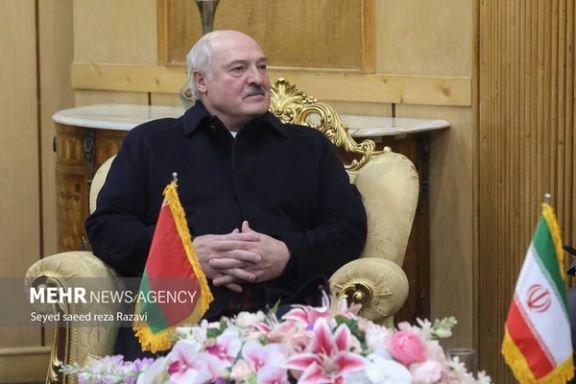
The President of Belarus is on a visit to Tehran to discuss bilateral ties between the two economically challenged nations and close Russia allies.
Alexander Lukashenko, dubbed "the last dictator of Europe", will meet with Iran’s First Vice-President Mohammad Mokhber, parliament speaker Mohammad-Baqer Qalibaf, and Iran’s ruler Ali Khamenei, Iran’s supreme leader.
The visit will focus on“emphasis on trade and economic cooperation,” including industry, agriculture, transport, and logistics, according to Lukashenko’s press agency.
“Special attention will be paid to the situation in the region and the world in general,” the press release stated, adding that several agreements on “areas of mutual interest” will be signed.
Alexander Lukashenko, Putin’s ally in the war against Ukraine, said last month that the global situation of Iran and Belarus has forced the two countries to have closer links.
Belarus mainly exports potassium fertilizer, wood and fibers to Iran and imports food products from the Islamic Republic. Annual trade between the two dictatorships reached a peak of just $100 million in 2022, the trip aiming to increase that significantly.
The presidents of Iran and Belarus made the pledge for greater cooperation on the sidelines of the 16th Shanghai Cooperation Organization summit in Samarkand in September, to be led by the two countries’ foreign ministers.
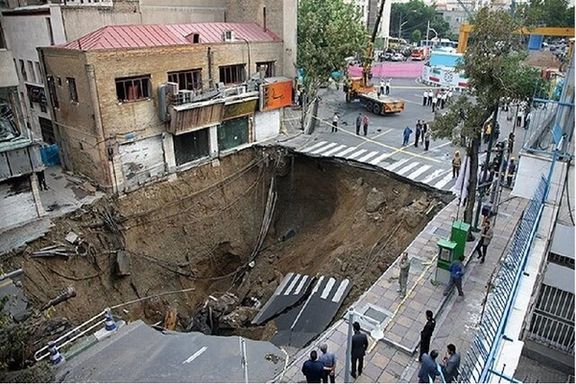
Experts in Iran warn the current land subsidence situation in Iran is “critical", claiming it puts the lives of more than 39 million people at risk.
Several factors have caused the situation to reach breaking point, including dam construction, climate change, inefficient water consumption by agriculture and industries, and the use of underground aquifers as sources for illegal agricultural water extraction wells.
Ali Beitollahi, heading the disaster task force on the issue at the Road, Housing and Urban Development Research Center of Iran, said the approximate area of subsidence zones in the country is now 18.5 million hectares, almost 11% of Iran's total area.
Beitollahi has been warning of the danger for several years, and says if action is not taken, it endangers the lives of nearly 49% of Iran’s population.
He said, ”Three hundred and eighty cities and 9,200 villages are at risk of land subsidence, and in some cases the entire area of the cities are located in the subsidence zones.”
Tehran, Razavi Khorasan in the east and Esfahan in central Iran are the provinces most at risk, Razavi Khorasan in the most imminent danger.
However, international reports claim the danger is even worse, nearing a humanitarian crisis. Science journal claims that more than 98% of Iran's 1.648 million km of land faces land subsidence.

Internationally, a rate of subsidence greater than 4mm per year is considered a crisis and yet Iran's land is sinking at an astonishing rate of 6cm per year as a result of 25 years of water level decline in the plains.
Ground subsidence in urban areas have resulted in power outages, bursting of gas pipes, deformation of rails, emergence of sinkholes, tilting of buildings, the appearance of cracks and ditches in roads and even loss of human life.
Continued water level declines will reduce the ground's water permeability and turn fertile plains into barren deserts.
Kamran Davari from Ferdowsi University of Mashhad, told ISNA state news agency that many cases of subsidence have been reported from some areas in the Mashhad plain in the northeast where subsidence is between at least 3cms and a staggering 15-17.5cms in the northwest of Mashhad city. Davari said the situation had reached “hyper critical”.
Based on the underground water quality zoning map, the areas with good water quality have decreased drastically in Mashhad over the past decade.
"If the electrical conductivity of water exceeds 1,500, it indicates that the water is no longer suitable for drinking,” explained Davari. “Unfortunately, in the eastern areas of Mashhad, the electrical conductivity is currently between 3,000 to 5,000.”
The journal Taylor & Francis Online confirms the fears. In research last year, it claimed: “The province of Razavi Khorasan in the northeast of Iran had the largest area (about 3500 km2) vulnerable to land subsidence occurrence”.
It warned of other risk-prone areas in the future. “Based on the land subsidence susceptibility map, the provinces of Ardabil, Kurdistan, West and East Azerbaijan, Sistan and Baluchistan and Kermanshah, although not currently undergoing a high rate of land subsidence, will be at high risk of severe land subsidence in the future.”
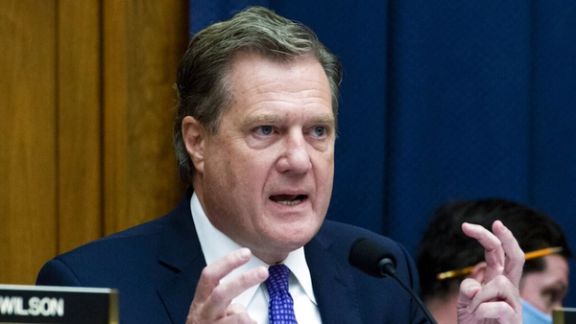
A committee chairman in the US House of Representatives says the Chinese-mediated agreement between Iran and Saudi Arabia to restore diplomatic ties is “very troubling.”
Michael R. Turner, Republican from Ohio has said in an interview with ABC News that it is disappointing to see Saudi Arabia look elsewhere except the US for support.
“I think that, of course, is a reflection on the Biden administration,” Turner said on Sunday, adding that “It’s not unexpected that [Saudi Arabia] might look elsewhere for support. It certainly is very unexpected and certainly very troubling and disappointing that they would turn to Iran.”
The Islamic Republic and Saudi Arabia agreed to re-establish diplomatic ties after Chinese-brokered talks in Beijing. Following five days of negotiations, it was agreed on Friday that the two countries will reinstate embassies and missions after seven years of no diplomatic relations and occasional tensions.
Saudi Arabia severed relations with the Islamic Republic in January 2016 after hardliner supporters of Supreme Leader Ali Khamenei formed mobs and attacked and ransacked its embassy in Tehran and consulate in Mashhad following the execution of a Saudi Shiite cleric.
Turner, who heads the House Intelligence Committee, further criticized the Biden Administration saying US officials have been slow to respond to Riyadh’s military needs.
“The Biden administration appears to be much too timid… in their approach to Russia… and I think even in China they are afraid to provoke,” Turner added. “They are absolutely emerging as a military threat to the United States. I think we need to respond and respond very strongly.”
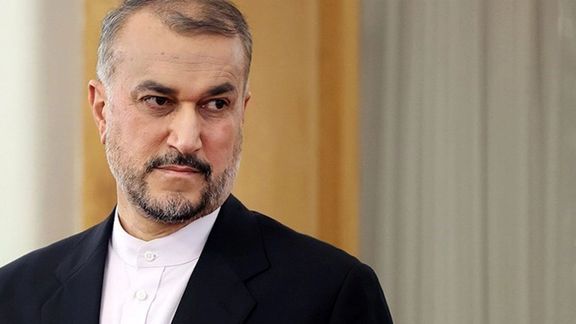
While Islamic Republic’s foreign minister says Iran and the US have reached a prisoner exchange deal, the Biden administration dismissed the claim as a “cruel lie.”
Iran’s foreign minister Hossein Amir-Abdollahian told state TV Sunday that “Regarding the exchange of current prisoners between Iran and the US, we have reached an agreement within the past few days. If everything goes well on the American side, I think we will witness a prisoner exchange in the near future. We see this as an entirely humanitarian case.”
A White House official immediately denied Amir-Abdollahian's statement about the prisoner swap, reiterating that the United States was committed to securing the release of Americans held in Iran. Amir-Abdollahian claimed that a document laying out the exchange had been “indirectly signed and approved” since early March 2022, without saying who would be exchanged in the prisoner swap.
One of several Americans held in Iran is Siamak Namazi, a businessman with dual US-Iranian citizenship, who was sentenced to 10 years in prison in 2016 on charges of espionage and cooperating with the US government. Emad Sharghi, another Iranian-American businessman, was arrested in 2018 when he was working for a tech investment company. Iranian-American environmentalist Morad Tahbaz, who also holds British citizenship, is a third prisoner.
US State Department spokesperson Ned Price told the AP that the comments are “another especially cruel lie that only adds to the suffering of their families.” “We are working relentlessly to secure the release of the three wrongfully detained Americans in Iran,” Price said. “We will not stop until they are reunited with their loved ones.”

A separate statement from a spokesperson with the White House’s National Security Council also called the remarks “false,” adding, “Unfortunately, Iranian officials will not hesitate to make things up, and the latest cruel claim will cause more heartache for the families of Siamak Namazi, Emad Shargi and Morad Tahbaz,” naming the three Americans held on trumped-up espionage charges. "Claims by Iranian officials that we have reached a deal for the release of the US citizens wrongfully held by Iran are false," the spokesperson said.
In recent days, Namazi was allowed to conduct an interview with CNN from Tehran’s notorious Evin prison — something that cannot normally happen in the Islamic Republic’s prisons.

Reuters cited a source briefed on the talks as saying that the prisoner exchange is "closer than it has ever been," but one of the remaining sticking points is linked to $7 billion in Iranian oil funds frozen under US sanctions in South Korea. "The logistics of how these funds will be exchanged and how oversight will be provided are unresolved," added the source.
The source also said that Qatar and Switzerland have been involved in the prisoner exchange talks.
The Islamic Republic, which is holding dozens of Iranian dual nationals and foreigners, has been accused by human rights organization of hostage diplomacy, trying to extract concessions from other countries. Tehran denies this and insists all foreigners are tried according to legal process. However, it has frequently shown readiness for prisoner exchanges and participated in swaps in the past.
Earlier in the day, Iranian media reported that Habib Chaab – also known as Habib Osaivad – an Iranian-Swedish political activist, founder and former leader of Arab Struggle Movement for the Liberation of Ahvaz, was sentenced to death for "terrorism" and "corruption on earth" by the judiciary. Swedish Foreign Minister Tobias Billstrom later on Sunday condemned the sentence as "inhumane," calling it an "irreversible punishment".
There are also reports that the Islamic Republic is ready for a prisoner swap with Belgium after the constitutional court in the European country upheld an exchange treaty. The Constitutional Court of Belgium rejected a request last week to annul the prisoner exchange treaty with the Islamic Republic signed last year that can lead to the release of Iranian diplomat Assadollah Assadi, convicted of terrorism, for Belgian aid worker Olivier Vandecasteele, held hostage in Iran.
Assadi, 50, a former attaché at the Iranian embassy in Austria, was convicted of plotting to bomb a gathering of the exiled opposition group Mujahedin-e Khalq Organization (MEK) near Paris on June 30, 2018. Iran says Nouri’s detention is driven by “false allegations” made by the MEK.